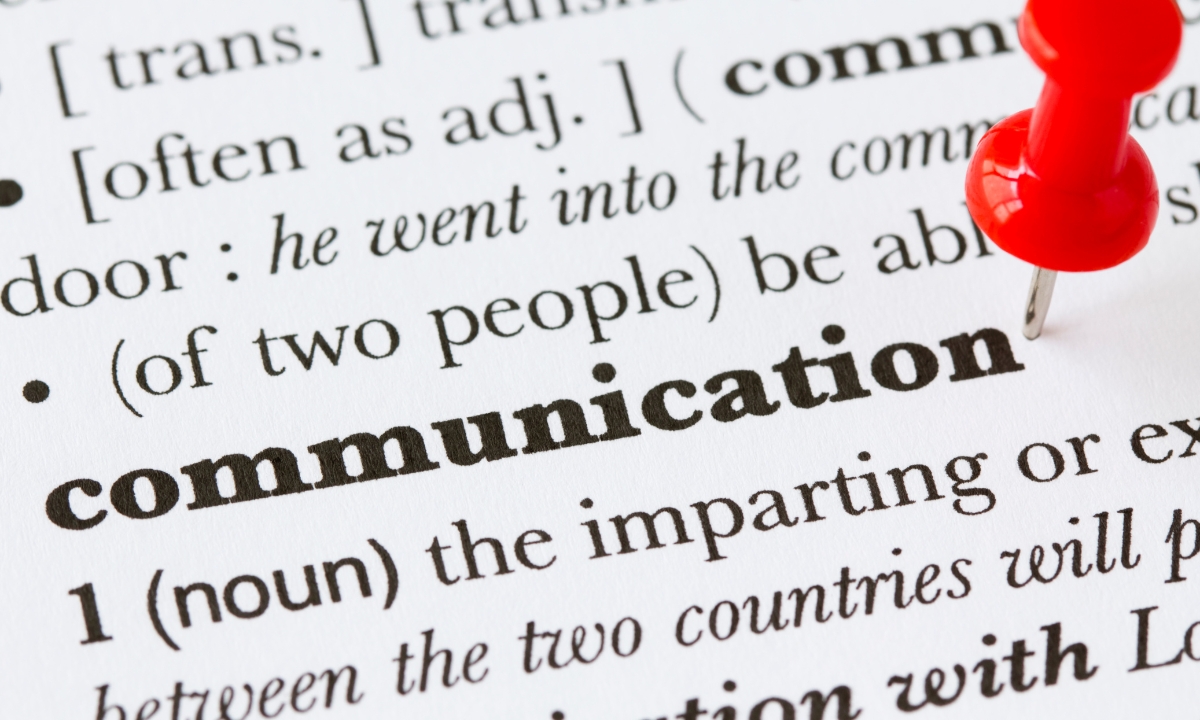If your loved one is receiving in-home care, communication with their care provider is essential. Regular, open communication ensures that everyone is on the same page about your loved one’s well-being, preferences, and any new health concerns. Building a strong, collaborative relationship with your loved one’s home care team not only improves the quality of care but also brings you peace of mind, knowing that they’re receiving the best support possible.
At Reliant Home Care Services, we believe that effective communication is the cornerstone of compassionate, high-quality care. Let’s discuss some of the ways you can keep in touch with your loved one’s caregivers, what to communicate, and how technology can make communication easier and facility independent living.

The Importance of Communication with Care Providers
In-home caregivers play an essential role in your loved one’s day-to-day life, so maintaining clear and consistent communication with them is crucial. When family members and care providers work together, they create a more comfortable and personalized care experience. Open communication can prevent misunderstandings and ensure that your loved one’s needs are met effectively.
According to a study by the Family Caregiver Alliance, nearly 85% of family caregivers say that maintaining consistent communication with in-home caregivers has significantly improved their peace of mind and confidence in the quality of care provided. This partnership ensures that your loved one’s health, safety, and emotional needs are always prioritized.
What to Communicate with Home Care Providers
Whether your loved one is new to in-home care or has been receiving it for some time, here are some key aspects to regularly communicate with their caregivers:
1. Health Changes and New Concerns
Your loved one’s health can change over time, so it’s essential to keep the caregiving team informed about any new health concerns or symptoms. Even small changes, such as changes in appetite, sleep patterns, or mood, can be important for the caregiver to know. Some health issues may seem minor but could indicate a need for adjustments in the care plan.
If there is a change in medication, or if the doctor has recommended new treatments or exercises, make sure to share this information with the caregiver. Keeping everyone informed helps prevent complications and ensures that care is aligned with current health needs. This also means keeping clear lines of communication open with your loved one’s doctors and other healthcare providers.
2. Personal Preferences and Comfort
Personal preferences, like favorite foods, daily routines, and hobbies, help caregivers provide more personalized care. Make sure to discuss any changes in your loved one’s preferences or routines, as these details contribute to a positive caregiving experience. For example, if your loved one has developed a new interest or feels uncomfortable with a certain activity, let the caregiver know so they can adjust accordingly.
3. Scheduling and Availability
Clear communication about scheduling is essential for both family members and caregivers. If there are changes to the usual schedule, such as family visits or appointments, let the caregiver know in advance. This helps prevent scheduling conflicts and ensures that the caregiver can provide uninterrupted support when needed.
How to Keep in Contact with Home Care Providers
Regular check-ins can make a significant difference in the quality of care and in your peace of mind. Here are some practical ways to stay in touch with your loved one’s caregivers:
1. Schedule Regular Updates
Establish a routine for receiving updates from the caregiver, whether it’s a weekly phone call or a quick check-in after each visit. This practice allows you to stay informed about your loved one’s condition and address any questions or concerns in real-time.
2. Use a Communication Log
Consider setting up a communication log or journal where caregivers can note daily updates. This could include details about meals, mood, activities, and any health-related observations. A communication log is especially helpful if you have multiple caregivers, as it provides continuity of care and keeps all relevant information in one place.
3. Maintain Open Lines of Communication
Encourage open communication between the caregiver, yourself, and other family members. Create a supportive environment where caregivers feel comfortable sharing observations or asking questions about your loved one’s needs. Building trust and openness with caregivers enhances their ability to provide personalized, compassionate care.
The Role of Technology in Communication
Technology can simplify communication between families and caregivers, especially when family members live far away or have busy schedules. In recent years, digital tools have made it easier to stay connected and monitor your loved one’s care while allowing them to continue living independently.
1. Video Calls and Messaging Apps
Video calls and messaging apps like FaceTime, WhatsApp, or Zoom can provide real-time communication between caregivers and family members. Many families find video calls particularly valuable for visually checking on their loved one’s condition and building rapport with the caregiver.
2. Care Management Apps
There are various apps designed specifically for managing senior care. For example, apps like CareZone and Caring Village allow family members to communicate with caregivers, track medications, schedule reminders, and store important documents. These tools provide a centralized platform for sharing information, keeping everyone involved and informed.
3. Daily Monitoring Devices
For seniors with more intensive health needs, monitoring devices such as fall detectors or health-tracking apps can send real-time updates to caregivers and family members. This technology allows caregivers to be notified of any unusual changes, adding an extra layer of safety.
According to AARP, nearly 60% of family caregivers say that using technology has improved communication and enhanced their ability to stay involved in their loved one’s care. Utilizing these tools can make a significant difference, especially if you’re coordinating care from a distance.
Creating a Partnership with Home Care Providers
At Reliant Home Care Services, we believe that communication is key to building a successful, compassionate care experience. By staying in touch, sharing updates, and listening to each other, you and the caregiver can create a partnership that truly benefits your loved one.
We encourage families to communicate openly with our caregivers, as this collaboration enables us to provide care that respects your loved one’s needs and preferences. Our team is here to support you every step of the way, ensuring that your loved one receives the compassionate, personalized care they deserve.

Start the Discussion Today
Effective communication with home care providers creates a safe, comfortable environment for your loved one and provides peace of mind for you and your family. By keeping caregivers informed, scheduling regular updates, and utilizing technology, you can help create a strong foundation of support.
If you’d like to learn more about how Reliant Home Care Services can support your family and enhance communication, please reach out to us today. We’re here to make caring for your loved one a collaborative, compassionate experience.

